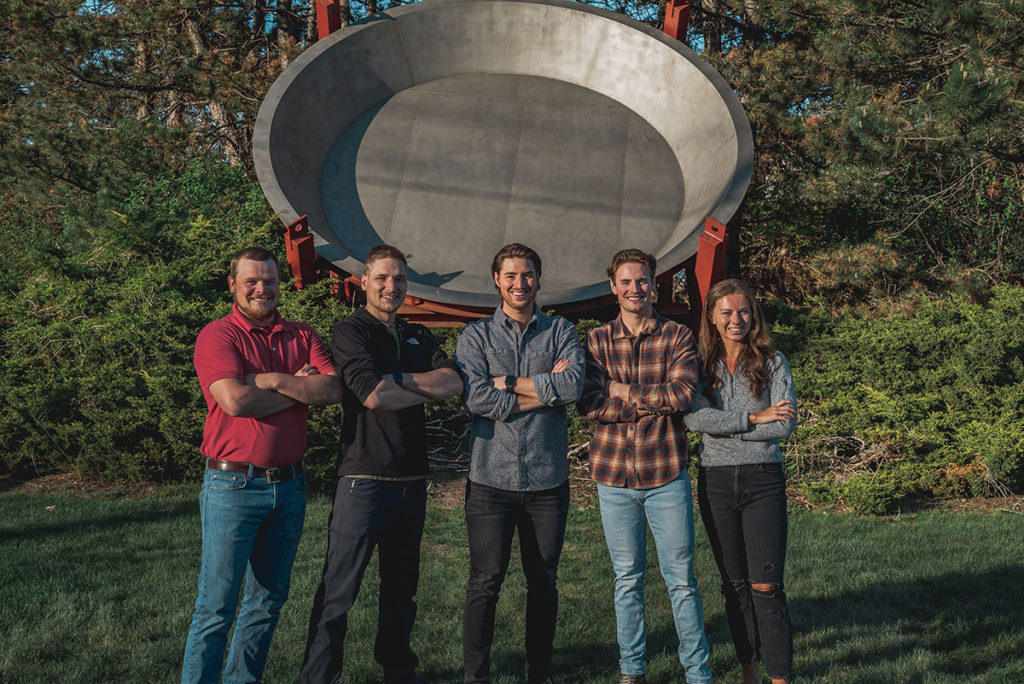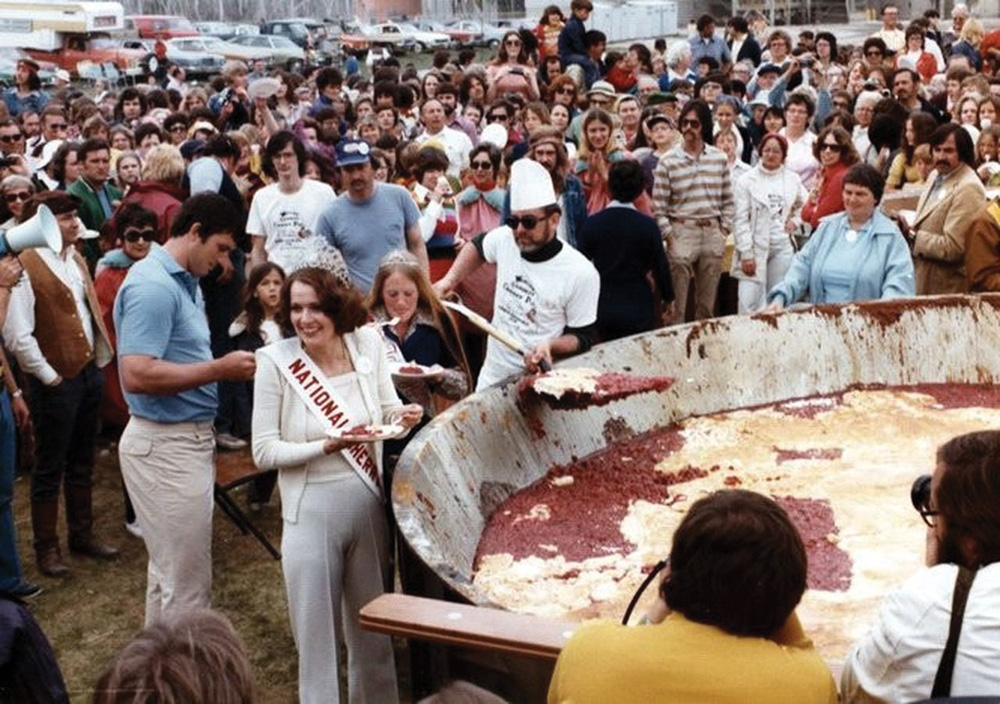
When the quest is setting the Guinness World Record for baking the largest cherry pie, you can’t have too many cooks in the kitchen. For a 50,000-pound cherry pie, you need cooperation, precision, cash and an ample helping of community spirit.
That’s easy as pie for Cherryland Electric Cooperative, headquartered in Traverse City, Michigan, informally known as the Cherry Capital of the World. The co-op is providing technical expertise and financial support for the Big Pie Project, a local effort begun by two brothers to bring the world record back to Traverse City, which claimed the title in 1987 before losing it three years later.
“In my mind, we can utilize a bucket truck or two to transport the pie filling from 50-gallon drums and dump it directly into the crust,” said right-of-way specialist Zachary Endres, the co-op’s liaison with the Big Pie Project.
Endres is a lifelong friend of project founders Dakota and Garret Porter, who want to raise $50,000 for the August 2023 effort. If successful, they would break the latest record set in 1990 in Oliver, British Columbia, Canada, where a rotary club baked a 37,721-pound colossus from 32,000 pounds of cherries, 3,500 pounds of sugar and 16 pounds of salt, among other ingredients.
“It’s almost a logistical nightmare. But it’s a dream for us,” said Garret Porter. “Most importantly, it’s a fundraiser to benefit local causes.”

“We want to give back to the community that’s given us so much,” he added, recalling the outpouring of help he and Dakota received when they were trying to launch their own company as teenagers.
As the co-op’s official Big Pie Project rep, Endres has enlisted the help of several co-workers. Ron Carr, a workplace construction engineer, used “simple geometry” to calculate the size and volume of pie and the size of the oven to cook the dessert.
“All three interact,” said Carr. “You’ve got so many pounds of pie and you need a certain size oven. You don’t want to build an oven and then find out that the pie doesn’t fit!”
While corporate sponsors have guaranteed to underwrite major costs for raw materials, local partners like the co-op are crucial. A steel supply company will design and make the pie tin; an orchard will donate most of the cherries; an advertising firm will publicize the fundraiser; and a bakery will scale up the ratios of its famous cherry pie recipe.
“The Guinness people are very strict, and the pie has to be homemade and baked on-site,” said Dakota Porter. He said that a representative will be present during the two-day prep and baking period to verify results. “You can’t just take a picture and send it in.”
When the big day comes, project partners want to bake and serve the pie at a festive event in Traverse City’s Open Space, a beachfront park. Estimated baking time in a 30-foot oven is about eight hours, and the pie will serve 40,000 to 50,000 people.
“We’re hoping to scrape the bottom of the pan,” said Garret. “But if not, we will give leftovers to food banks. We don’t want any food to go to waste.”
Victoria A. Rocha is a staff writer for NRECA.